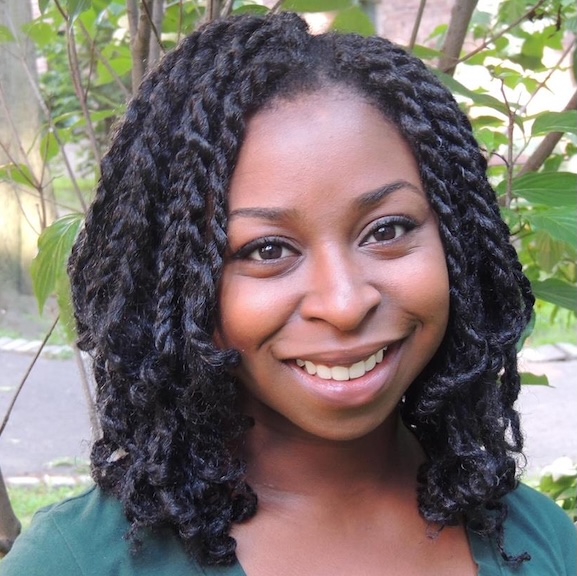Dr. Lasha Clarke PhD, MPH (Global Epidemiology-16′)
Global Epidemiology
Assistant Director of Research and Translation, Center for Maternal Health Equity at Morehouse School of Medicine

April 30, 2024

What is your current position at the Center for Maternal Health Equity at Morehouse School of Medicine?
I am the Assistant Director of Research and Translation under Natalie Hernandez. I started at the center during my post-doc and then moved into a leadership position. I love the importance the Center of Maternal Health Equity places on centering the voices of Black women and Black families. I started in 2019, and then in 2020, I received funding from HRSA (Health Resources and Services Administration) and NIH (National Institutes of Health) to do maternal health equity work to use those funds on what Black families and mothers actually need. We do this by ensuring there is space for storytelling, and thankfully, there is so much space for that in the qualitative research arm of what we do. We get to see what people are saying, then go back to communities and review it with them to see how accurate it is, and then we go back and fill in what we’re missing. I love that I’m doing quantitative research, but also seeing real-world impact through these stories and brainstorming about solutions is so fulfilling. At the center, we really want to live out the equity and justice framework in a way that’s respectful and responsive to the community.
How did your Rollins education prepare you for this position?
Before coming to Rollins for my MPH and later PhD, I went to Princeton during undergrad and was a psych major because I have always been interested in mental health. That led me to Maternal Mental Health, and then that led me to Rollins and my thesis on Gendered Racial Stress and Reproductive Justice, which was added to my MPH, where everyone was getting language to speak about these injustices and downstream interpersonal factors. I did my MPH and then continued my PhD and got more advanced epi methods training to comprehensively and ethically study marginalized and minorized families in a way that can change lives. You need to carve your own path by doing qualitative research because that’s where the story is. I definitely recommend reaching out to other departments to learn mixed-methods social epidemiology.
What accomplishment/project are you most proud of during or after your time at Rollins?
Well, with reproductive justice, we often talk about the right to not have a child, but we often forget that piece of the right to have a child. While studying the pregnancy and birth track, I never really thought about infertility and how the same factors impact that. I broaden the scope of my work to not just those who are mothers but also those who are struggling to be mothers or want to be. I am currently working on a study called The Fertility Equity Study that looks at understanding the inequities in infertility among Black women. Although I enjoy both the qualitative and quantitative portions of this study, the most rewarding part of my work has been the qualitative stories these mothers are sharing and seeing them connect the dots of what they’re experiencing. So many women are so grateful for having this space to be able to have these conversations. It also served as a call to action to make this kind of space more available and accessible for Black women and overall make the experience of infertility and wanting to parent more equitable for them. It’s hard for anyone, but with gendered racial stress and social determinants of stress Black women uniquely experience, that journey becomes even harder.
How can academia and public health better incorporate the reproductive justice framework?
Intentionality is the key word. It is a big ask and task to upend the way our society works, but the key to doing so is finding the right people and putting in our best collective efforts to work with the right intentions. With the right intention, you can keep inclusivity, equity, and justice and build systems that help you correct your course and keep you accountable. It is also important to have community partnerships with organizations that are experts in reproductive justice topics, like Black Mamas Matter Alliance and SisterSong, and build capacity where they need it. Whether it’s contributing funds or resources to help them do the work they’ve already been doing, we should be uplifting and learning from them.
What advice do you have for current and future MCH Certificate students who want to improve our MCH landscape?
If you have identified a passion or interest, see how you can get involved to further that passion and build upon that skill set. Take the initiative to go and seek out those people who are working in your field of interest. Overall, to forge your own path, take what you are learning in your curriculum and seek out additional opportunities for those skills you may be missing. Seek opportunities to round out the skillset you want to graduate with.
What do you enjoy doing most outside of public health?
I love nature even though I grew up in Brooklyn, New York, so I don’t know where that came from. However, I love going on hikes and taking walks around town because there are so many beautiful nature spots in Georgia. I make it a part of my daily routine to go into nature and destress. It’s especially important for us working in Black maternal Health to go into nature, hear the birds, and grieve freely about what we see professionally. Self-care is something that we all need to do because the problems are bigger than any of us.
